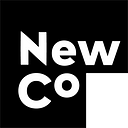The Great Payday Disruption
Today’s Top Stories
Disrupting Payday: What’s the best way to help people between paychecks?
Google’s Eyesight-Saving Partnership: Its AI division is collaborating with Britain’s National Health Service.
Close to the Edge: For BigCos, the next big idea may be closer than they think.
No One Can Do It Alone: Not even Bill Gates.
Finger-Lickin’ True: You want to know who the real Colonel Sanders was, don’t you?
Disrupting Payday. There’s a spirited argument over whether payday loans help or hurt people, but there’s no argument that things would be better if people didn’t need them. Companies are innovating to decrease the time people have to wait for their paydays (New York Times). Lyft and Uber have plans to let drivers get paid quicker, and startups are entering the field, too, with fees that are currently all over the place. Some are less than the transaction fees for out-of-network ATM cash withdrawals, but one example cited by the Times suggested an 156% annual rate for one very short-term advance, and that’s payday loan territory. It’s messy but it’s early; this could develop into a more affordable way for people who aren’t well-served by the current system. And it’s telling that the possible solutions are coming from private industry, not government.
Google’s Eyesight-Saving Partnership. NewCos use the powerful algorithms at their disposal for good. Google has announced a collaboration between its Deep Mind subsidiary and the British National Health Service to see if Google’s AI can prevent blindness and other eye diseases (Fortune). Deep Mind will “look” at a million anonymous eye scans from the NHS “with the goal of creating a faster, more efficient method for analyzing the data and coming to an earlier diagnosis.” There are plenty of reasons to think hard about how we use AI (see this recent column on the topic by our editor in chief); it’s heartening to see a company use its scale for the right reasons.
Close to the Edge. Ah, disruption. It’s a mantra in the Valley and elsewhere, but The Economist’s Schumpeter columnist reminds us that there’s another way, looking at the new Edge Strategy from a pair of consultants at LEK. Alan Lewis and Dan McKone riff on an idea that will be familiar to followers of John Hagel, John Seely Brown, and plenty of other NewCo-tinged theorists: that the next big idea most likely won’t emerge from some blue ocean but on the edges of existing businesses. That’s why Toyota has a good business selling traffic information and Amazon has an amazing one selling cloud-server capacity. If you’re a BigCo, your big hairy audacious goal might be closer than you think.
No One Can Do It Alone. This slight Quartz piece might have a silly, clickbait-y headline–25 years ago Bill Gates’s mom forced him to be friends with Warren Buffett–but there’s an important lesson packed inside it. Gates, who turned his Microsoft fortune into the platform for the world’s top philanthropic foundation, didn’t come to philanthropy by himself. Family pushed him in that direction, as did his friendship with the Oracle of Omaha. It’s a good reminder that even the most inspired leaders can’t figure out everything themselves; they need to be surrounded by people who understand them–and push them.
Finger-Lickin’ True. It’s a very hot summer day in Massachusetts, where the Daily is being written and edited today. Wherever you are, get out of the sun for a bit to read why the real story of Kentucky Fried Chicken founder Colonel Harland F. Sanders bears no relation to the bland inspirational memes floating around the web nowadays (The Verge). No, the Colonel wasn’t a billionaire. No, the kidnapping plot seems to be a hoax. But the connection to J. Edgar Hoover was real. And, yes, he “first built an identity on fried chicken while running a service station with his mistress.”
Want to follow the biggest story in business? Get our NewCo Daily and Weekly newsletters.

